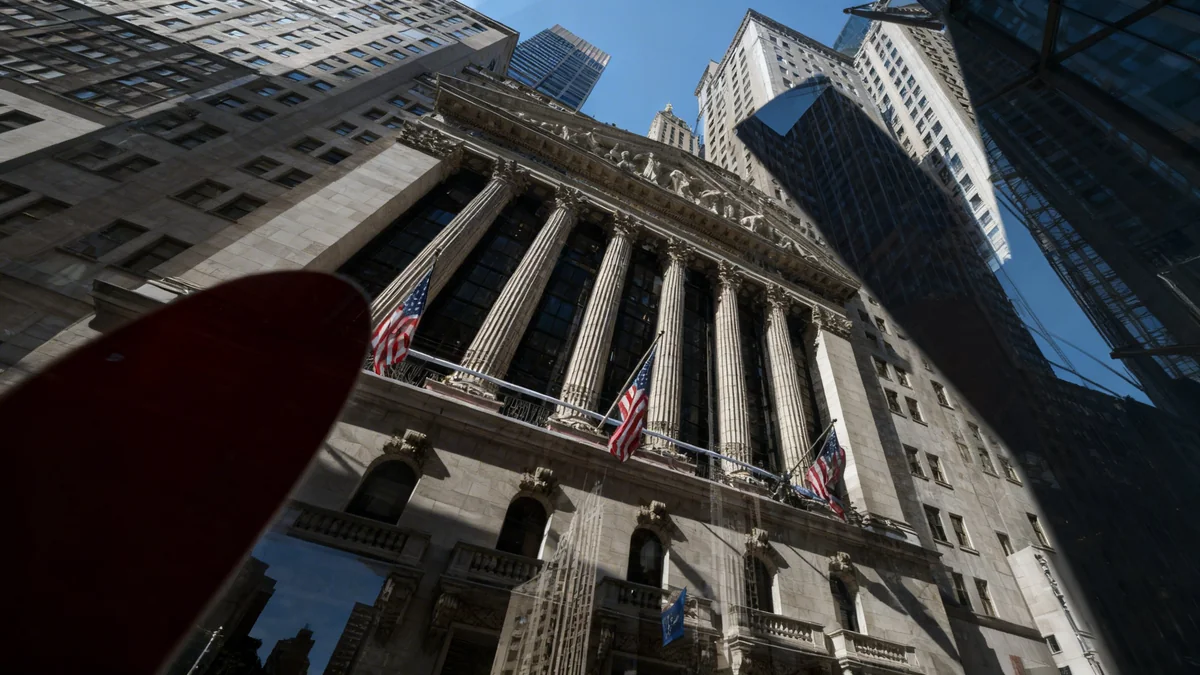Major technology companies have reduced their workforce by thousands in recent months, citing the anticipated productivity gains from artificial intelligence. This trend is creating a potential conflict for political leaders who have promoted AI as a benefit for workers, especially as economic indicators show signs of instability and consumer confidence wanes.
While executives point to AI as a driver for efficiency, the immediate benefits and long-term consequences for the labor market remain uncertain. The job reductions in the tech sector contrast with overall employment growth in the wider U.S. economy, raising questions about the real-world impact of AI on jobs.
Key Takeaways
- Technology companies are reducing staff, attributing the cuts to future AI-driven productivity.
- Data shows a decline of over 160,000 jobs in the information sector since late 2022, while the overall economy added jobs.
- Some experts believe CEOs are using AI as a justification for layoffs primarily driven by other economic factors like interest rates.
- The trend poses a political challenge for administrations that have championed AI while promising job security for American workers.
A Wave of AI-Cited Layoffs in Technology
Several high-profile technology firms have recently announced significant workforce reductions. Salesforce CEO Marc Benioff stated that AI is handling up to 50 percent of the company's work, a development followed by the elimination of 4,000 positions. Benioff explained that he “needs less heads” as human workers and AI agents begin to collaborate.
Other industry giants have followed a similar path. In July, Microsoft reduced its workforce by 4 percent while increasing its investment in AI. IBM also cut thousands of roles, with a significant impact on its human resources department. Meanwhile, Meta has reportedly instructed its Metaverse teams to use AI to accelerate their work fivefold.
Information Sector Employment Declines
According to the Bureau of Labor Statistics, employment in the information sector, which includes many tech jobs, has decreased by more than 160,000 positions since the end of 2022. This period coincides with the public release of advanced generative AI tools like ChatGPT. In contrast, the overall U.S. economy has added over 5 million jobs during the same timeframe.
The Productivity Question
Despite executive enthusiasm, the claim that AI immediately boosts productivity is facing scrutiny from within the industry. Several engineers at Meta, who were granted anonymity to speak candidly, reported that the technology does not always speed up their workflows. In many cases, they said, it can actually slow them down.
“We’re not going to become more productive overnight,” said one Meta software engineer. “Often the AI makes mistakes and we have to go back and fix it. It ends up being more work.”
This sentiment highlights a growing debate about the current capabilities of AI in complex professional environments. While the potential for efficiency exists, the practical implementation is proving to be a gradual process that requires human oversight and correction.
AI Adoption Rates Vary by Sector
A survey from the Census Bureau indicates that companies in the information sector are leading the adoption of AI. Nearly 30% of businesses in this sector reported using AI tools in a recent two-week period. This is significantly higher than the average of 10% across all business sectors, showing that the tech industry is at the forefront of this technological shift.
Economic and Political Fallout
The trend of AI-related job cuts could create significant political challenges. The Trump administration, for example, unveiled a White House AI action plan in July that promised the creation of good jobs and outlined initiatives to support American workers. If AI becomes widely associated with job losses, it could undermine these promises.
Darrell West, a senior fellow at the Brookings Institution, highlighted the potential disconnect for the public. “The stock market could be doing great, but if unemployment is going up and AI is taking jobs — that’s not great for the average American,” he said.
In response, White House spokesman Kush Desai affirmed the administration's goals. He stated the administration is “committed to ensuring that Americans have the skills, training, and opportunities to prosper.” Desai added that the U.S. can simultaneously lead in AI technology while also promoting job and wage growth.
Are Layoffs Premature?
Some industry leaders are skeptical that AI is the true cause of the current wave of layoffs. They suggest that other economic pressures may be the primary driver, with AI serving as a convenient explanation.
“I think CEOs are using AI as an excuse to explain a wave of layoffs that are probably way over-determined by interest rate changes,” said Will Wilson, CEO of the autonomous software company Antithesis. “AI has given them the perfect excuse.”
Justin Fineberg, CEO of Cassidy.ai, warned that cutting staff based on expected AI efficiencies could be a strategic error. “If you take the 30% efficiency and you just use it to shrink the workforce to look good on an earnings report... I think you’ve actually weakened your company long-term,” he explained. Fineberg suggested that successful leaders will redeploy talent rather than eliminate it.
This perspective is supported by research from the Society for Human Resource Management, which shows that only 6% of jobs are currently 50% or more automated, indicating that widespread job displacement is still limited.
AI as an Opportunity for Small Business
While large corporations are cutting jobs, some entrepreneurs see AI as a tool that empowers smaller companies. Startups, which often lack the resources to compete with tech giants, are using AI to perform tasks that were previously out of reach due to staffing limitations.
“I think it’s going to be a huge leveler of the playing field,” said Jacob Bank, CEO of Relay.app. He believes that as AI becomes faster and cheaper at handling certain tasks, it will open up new capabilities for small businesses that couldn't afford large teams.
This suggests a dual impact of AI on the labor market: while it may lead to consolidation and job cuts in established corporations, it could also foster growth and innovation among smaller, more agile enterprises.





